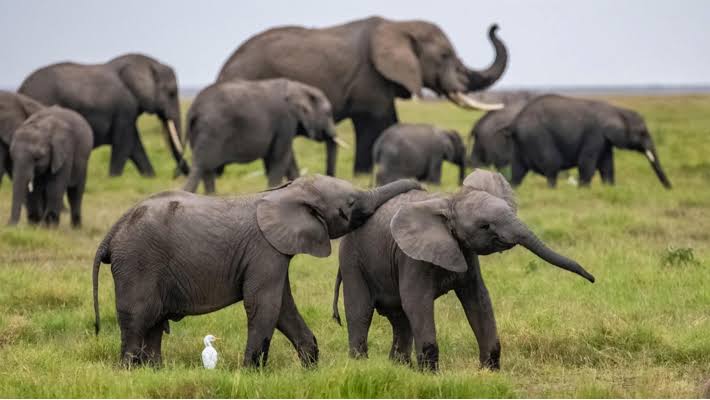Govt plans to kill 200 Elephants to feed hungry Residents

Govt plans to kill 200 Elephants to feed hungry Residents
The Government in Zimbabwean has approved the slaughter of 200 elephants to feed hungry citizens.
A spokesperson for the Zimbabwe Parks and Wildlife Authority, Tinashe Farawo, confirmed the development to CNN on Monday.
“We are targeting to cull 200 elephants,” Farawo said, lamenting rising cases of elephant-human conflict amid lingering food insecurity caused by severe drought in the East African country.
He added: “The animals are causing a lot of havoc in communities, killing people. Last week, we lost a woman in the northern part of the country who was killed by an elephant. The previous week, the same thing happened. So it (the culling) is also a way of controlling.”
According to local media, this year, over 30 persons have been killed in different wildlife-human conflicts in Zimbabwe.
Reuters quoted Farawo to have said the culling is also part of the country’s efforts to decongest its parks, which can only sustain 55,000 elephants. Zimbabwe is home to over 84,000 elephants.
“It’s an effort to decongest the parks in the face of drought. The numbers are just a drop in the ocean because we are talking of 200 (elephants) and we are sitting on plus 84,000, which is big,” he said.
The United Nations estimated over seven million to be at risk of acute hunger in Zimbabwe, declaring the East African country “as one of the hunger hotspots.”
In a statement in early August, UN said: “A new report from the UN aid coordination office (OCHA) reveals that food insecurity levels in Zimbabwe are rapidly deteriorating after it was hit with historic droughts due to the El Niño weather pattern,”
Zimbabwe’s planned culling of elephants comes weeks after the Namibian government adopted the same measure to tackle potential food insecurity and potential wildlife-human conflict as drought bites harder.





